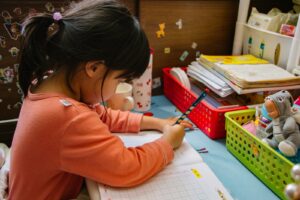Councils forced to slash spending on early children’s services
Record numbers of vulnerable children now need crisis support after austerity-hit councils halved spending on preventative services, according to a new report.
Council investment in early intervention support by councils in England fell 50% from £3.8bn to £1.9bn in the 10 years from 2010/11 to 2020/21, according the report commissioned by the Children’s Society, Action for Children, Barnardo’s, National Children’s Bureau and the NSPCC.
The coalition of charities said councils have struggled with the impact of government funding cuts, with many of the poorest areas hardest hit.
The research, by Pro Bono Economics, found dwindling funding for early support services – ranging from children’s centres and youth clubs, to targeted support with issues like drug and alcohol misuse – means families miss out on getting help early enough to stop problems spiralling out of control.
This then forces councils to spend more on costly crisis support, leaving more children and young people exposed to risks like exploitation, neglect and mental ill-health.

Mark Russell, Chief Executive at the Children’s Society, said: ‘Young people have told us they felt they needed to get hurt or harm someone in order be taken seriously.
‘It’s a big concern that children in deprived areas, where needs may be greatest, are often among those least likely to get help before problems spiral out of control.
‘If ministers are serious about Levelling Up they must better target funding to the areas that need it most. But councils everywhere have struggled amid government funding cuts and this is why we are calling on whoever becomes the next Prime Minister to ensure children’s services teams across the country get the extra funding they desperately need, sooner not later.’
The report, Stopping the Spiral, found spending on crisis and late intervention services soared by more than a third (37%) over the decade, from £6bn to £8.2bn. This was fuelled by a 24% rise in the number of children in care to almost 80,000, costing an extra £1.3bn. Four-fifths of local authority children’s social care spending went towards these services, which are more likely to be reacting to harm and which councils have a legal requirement to deliver, up from just 58% in 2010-11.
The report estimates that government funding available to councils for children’s services fell by more than a fifth from £10.4bn to £8.1bn between 2010/11 and 2020/21, with the poorest local authority areas – where children’s and families’ needs may be greatest – often forced to make the biggest cuts to early support services.
In these areas, early intervention spending per child was reduced by 61% on average, while 25% more was spent on late intervention. The West Midlands (66%) and North East (63%) faced the biggest falls in spending on early support per child over the decade, with the East Midlands (59%) and North West (54%) not far behind.
The coalition of charities are calling for the next Prime Minister to invest £2.6bn in children’s social care, as an absolute minimum, as recommended by the Independent Review of Children’s Social Care. They say that while investment is needed everywhere, there is a particular need for deprived areas to be given targeted funding.
Josh MacAlister, chair of the Independent Review of Children’s Social Care said: ‘These worrying figures support my call for a radical reset of the system to shift the focus towards intensive earlier support for families. It’s crucial that reform comes with the investment needed to boost support for families so that more children can grow up in loving families and that the care system can provide the same foundations.’
Spending on children’s social care plummeted by £249m over the decade, a 2.4% fall, despite rising numbers of vulnerable young people. Overall, councils spent on average £36 less on each young person – £580 in 2020/21, compared to £616 in 2010/11.
Photo by Piron Guillaume
















